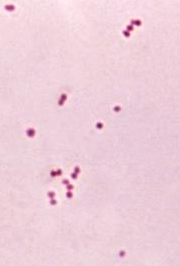Pfizer Inc. announced Tuesday that TRUMENBA® (Meningococcal Group B Vaccine), the first and only FDA-approved vaccine for active immunization to prevent invasive disease caused by Neisseria meningitidis serogroup B in individuals 10 through 25 years of age, is now available for order by healthcare providers in the United States.

Image/CDC
Serogroup B meningococcal meningitis is characterized by high fatality rates and rapid onset, often within 24 hours. For individuals 11-24 years of age, approximately 30 percent of meningococcal disease is serogroup B in the U.S., and 10 percent of these cases result in death. As many as 60 percent of adolescent survivors of meningococcal disease, 15-19 years of age, suffer from permanent life altering consequences such as hearing loss, neurologic damage, or loss of a limb.
“We have been working around the clock since TRUMENBA was approved by the U.S. Food and Drug Administration on October 29 to supply TRUMENBA in the U.S., as the most frequent question we have been asked following approval is when the vaccine would be available here,” said Susan Silbermann, president and general manager, Pfizer Vaccines. “As of November 18, TRUMENBA is available for order by healthcare providers, retail pharmacies, hospitals and college health centers who may be interested in stocking and administering the vaccine. We continue to work very closely with the CDC’s Advisory Committee on Immunization Practices to help inform discussions and potential recommendations regarding prevention of meningococcal group B disease through vaccination, an important step to improve access to TRUMENBA and help in the prevention of such a devastating disease.”
TRUMENBA (Meningococcal Group B Vaccine) is indicated for active immunization to prevent invasive disease caused by Neisseria meningitidis serogroup B in individuals aged 10 through 25 years of age. Approval of TRUMENBA is based on the demonstration of immune response, as measured by serum bactericidal activity against four serogroup B strains representative of prevalent strains in the United States.
The majority of invasive meningococcal disease cases worldwide can be attributed to five Neisseria meningitidis serogroups (A, B, C, W and Y). In 2012, approximately 40 percent of all meningococcal disease cases in the U.S. were caused by serogroup B. Meningococcal disease affects all age groups in the U.S., but incidence is highest among infants younger than one year, adolescents and young adults, and the elderly.
Meningococcal disease can be unpredictable and occur quickly and without warning in otherwise healthy individuals. Outbreaks and cases of meningococcal group B disease occurred in the U.S. in 2013 and 2014.
Meningococcal disease may result in life-altering, significant long-term and permanent medical disabilities. Despite the availability of antibiotic treatment, between 10 and 15 percent of patients with meningococcal disease die and 11 to 19 percent of those who survive are afflicted with long-term disabilities, such as brain damage, hearing loss, learning disabilities or limb amputations.


3 thoughts on “Meningococcal Group B Vaccine, Trumenba, now available in the US”